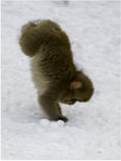Uncannily, the three books I picked at random this February all feature arduous treks along which the characters’ livelihoods are at the mercy of some despised, faceless enemy. The tragedy behind each of these stories serves as a reminder of all that we have to cherish, and how short life really is. Strange coincidence, for sure, since all the while I am pondering my own dogged march for the past eight years and when I may finally be able to step off the track, fall out of step with my comrades and explore what lies in neighboring woods and inland lakes just beyond my current reach.
Night, by Elie Wiesel
This little dagger of a memoir has the power to gouge into your gut with a twist of its blunt edge. I never heard of Elie Wiesel before Amazon.com listed this book as one of my recommended reads. I learned quickly in the preface that “Night” was published decades ago in longer form and is a rather famous Holocaust memoir. This recently released version, however, is a new translation by Wiesel’s wife, Marion Wiesel, and edited down from the original. In short, the memoir recounts Wiesel’s trek as a young child from his hometown to Auschwitz. Separated from his two sisters and is mother, Wiesel endures the unimaginable with his father by his side.
What I found most touching, besides the obvious father and son storyline, was the horror that Wiesel describes when witnessing his own humanity shrinking in fear. When your shaken soul cowers in the battered shell of your body, you find within yourself thoughts and actions you never thought you could be capable of. Makes you wonder how you much dignity you could preserve when reduced to a naked, shivering waif by so-called fellow humans.
Atonement, by Ian McEwan
Despite raging reviews and the whole Oscar nomination thing, I was not that impressed with this one. The writing is elegant, sure, and the characters all have their eccentricities, but I failed to find resonance in the stories unfolding through parts I, II or III. Maybe it is because I could not get Keira Knightley’s face out of my head from way too much media bombardment. Given the intricacies of the story, I found myself mostly unable to believe that “that just happened”. Something about it was forced. Or maybe it was I who felt coerced, obliged to plod on and on until the final kaboom.
The Road, by Cormac McCarthy
The style of this post-apocalyptic account brings you right back to the high school Eng. Lit. stalwart, The Old Man and the Sea. Throughout his methodically sparse storytelling, McCarthy chooses to go with character names of “the man” and “the boy”, seating the reader squarely in the mezzanine section of the third party observatory. At the same time, however, you find yourself leaning forward in the creaky velvet seats, drawn into a story that is much more personal than the prose lets on. In the event of some global nuclear disaster, “the man” could very well be you, and “the boy” your son.
As in the other two February picks above, resounding themes include courage in the face of extreme adversity, humanity fraying at the seams, and the primal instinct to survive. Somehow though, where Atonement’s extensive imagery and lengthy character studies lacks a certain degree of soul, The Road’s simplistic depiction guides you straight into the heart of humanity under attack. Definitely a book I would recommend for the uniqueness of its style, subject, and characterizations.
Thursday, February 28, 2008
Night, Elie Wiesel; Atonement, Ian McEwan; The Road, Cormac McCarthy
Subscribe to:
Posts (Atom)

